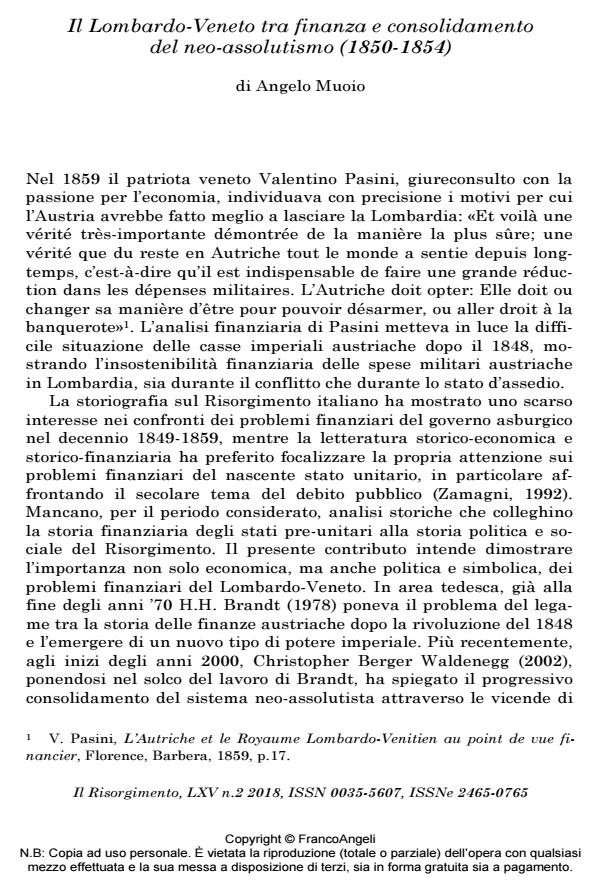The Lombard-Venetia between finance and consolidation of neo-absolutism 1850-1854.
Journal title IL RISORGIMENTO
Author/s Angelo Muoio
Publishing Year 2019 Issue 2018/2
Language Italian Pages 22 P. 159-180 File size 177 KB
DOI 10.3280/RISO2018-002006
DOI is like a bar code for intellectual property: to have more infomation
click here
Below, you can see the article first page
If you want to buy this article in PDF format, you can do it, following the instructions to buy download credits

FrancoAngeli is member of Publishers International Linking Association, Inc (PILA), a not-for-profit association which run the CrossRef service enabling links to and from online scholarly content.
1848’s revolutions open an era of political transformation. The increase of military expenses due to the nationalist revolutions led to administrative reforms, which improved the effectiveness of bureaucracy. This paper, comparing the national loans imposed to Habsburg Lombardy in 1850 and 1854, describe the evolution of Austrian political system in relation to the financial crisis of the empire in the aftermath of 1848. Pushed by the increasing expenditures, Habsburg government progressively centralized all the political decisions in Vienna and enforced the loans without any involvement of local élites. On the political level, the ideology of the unitary state superseded the myth of the multi-national empire. However, not being able to substitute the emerging national identities, in Lombardy it opened the decade that put an end to the centuries-old Habsburg dominion on the region.
Keywords: Neo-absolutism, National loans, Lombardy.
Angelo Muoio, Il Lombardo-Veneto tra finanza e consolidamento del neo-assolutismo (1850-1854) in "IL RISORGIMENTO" 2/2018, pp 159-180, DOI: 10.3280/RISO2018-002006